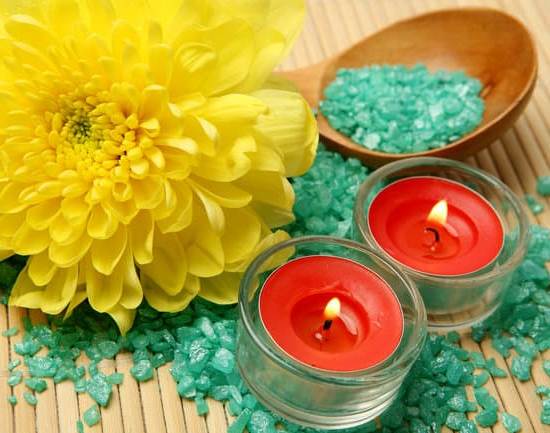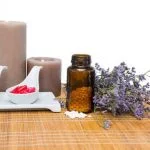Aromatherapy has been used for centuries as a holistic healing treatment, harnessing the power of essential oils to promote physical and mental well-being. In this article, we will delve into the world of aromatherapy foaming soap, exploring how to create personalized blends that not only cleanse the skin but also provide therapeutic benefits. From understanding the basics of foaming soap to selecting the right essential oils for aromatherapy, we will guide you through each step of the process.
Aromatherapy utilizes natural plant extracts to enhance psychological and physical well-being. The inhalation or topical application of these essential oils can help alleviate stress, improve sleep quality, boost mood, and even aid in pain management. When combined with foaming soap, these aromatic blends can elevate your daily cleansing routine to a luxurious and rejuvenating experience.
Before delving into the specifics of creating aromatherapy foaming soap, it is important to familiarize ourselves with the fundamentals of both aromatherapy and foaming soap. This knowledge will lay the groundwork for understanding how these two elements can synergistically come together to create a sensory delight that not only cleanses but also nurtures mind and body.
Understanding the Basics of Foaming Soap
Foaming soap is a popular option for hand and body cleansing due to its unique ability to create a rich lather using less product. This type of soap is preferred by many because it offers a luxurious and satisfying washing experience. Understanding the basics of foaming soap can help you create your own customized aromatherapy foaming soap blends at home.
To make aromatherapy foaming soap, you’ll need to use a specific type of liquid soap that is designed to produce foam. This typically involves mixing liquid castile soap with water, carrier oils, and essential oils. The addition of essential oils not only adds natural fragrance but also provides therapeutic benefits through aromatherapy.
When making your own aromatherapy foaming soap, it’s important to consider the ingredients used in commercial foaming soaps as well. Some commercially-produced foaming soaps may contain harsh chemicals and synthetic fragrances that are not beneficial for the skin. By creating your own blend at home, you have control over the quality of ingredients used.
Choosing the Right Essential Oils for Aromatherapy
Aromatherapy is the use of essential oils and aromatic compounds to improve mental, physical, and emotional well-being. Each essential oil has unique therapeutic properties and benefits, so it’s important to choose the right ones for your aromatherapy foaming soap.
When selecting essential oils for your soap, consider their scent as well as their intended use. Lavender, for example, is known for its calming and relaxing properties, making it a great choice for a foaming soap to be used before bedtime.
Another important factor to consider when choosing essential oils for aromatherapy foaming soap is the synergy between different oils. Some combinations of oils work well together to enhance each other’s properties. For example, mixing lavender with chamomile can create a soothing and comforting blend perfect for a relaxing shower or bath.
When making aromatherapy foaming soap, always remember that certain essential oils may not be suitable for everyone. Some people may have allergic reactions or sensitivities to certain oils. It’s best to do a patch test before using a new oil in your soap recipe, especially if you plan on sharing or selling your products.
In addition to considering the therapeutic properties of essential oils, it’s also important to think about how the scents will combine with each other and with the natural fragrance of the foaming soap base. Experiment with different combinations until you find one that appeals to both your senses and your desired mood or outcome.
| Essential Oil | Therapeutic Properties |
|---|---|
| Lavender | Calming and relaxing |
| Peppermint | Invigorating and refreshing |
| Lemon | Uplifting and energizing |
Gathering the Necessary Ingredients and Supplies
When it comes to making your own aromatherapy foaming soap, gathering the necessary ingredients and supplies is an essential first step. To make sure you have everything you need, start by checking your inventory for the following items: liquid Castile soap, distilled water, aloe vera gel, vitamin E oil, essential oils of your choice, and a foaming soap dispenser.
Liquid Castile soap serves as the base for your aromatherapy foaming soap and can be found at most health food stores or online retailers. Distilled water is important for diluting the soap and other ingredients. Aloe vera gel and vitamin E oil are optional but recommended for their skin-soothing properties. As for essential oils, choose scents that not only appeal to you but also offer aromatherapeutic benefits such as lavender for relaxation or peppermint for energy.
In addition to the ingredients, you will also need a foaming soap dispenser. This type of dispenser is specifically designed to create foam from liquid soap when combined with air and water.
You can find foaming dispensers at most beauty or home goods stores, or simply repurpose an empty one from a store-bought foaming soap. With all these ingredients and supplies on hand, you’re ready to move on to the next step in creating your own custom aromatherapy foaming soap.
Step-by-Step Guide to Making Aromatherapy Foaming Soap
Aromatherapy foaming soap is a great way to incorporate the benefits of essential oils into your daily routine. Not only does it provide a luxurious lather for cleansing, but it also allows you to enjoy the therapeutic effects of aromatherapy while washing your hands. Here’s a step-by-step guide on how to make aromatherapy foaming soap at home.
Step 1: Gather Your Ingredients and Supplies
- Liquid Castile soap
- Distilled water
- Carrier oil (such as fractionated coconut oil or sweet almond oil)
- Essential oils of your choice
- Foaming soap dispenser
Step 2: Measure and Mix Your Ingredients
Begin by measuring out 2-3 tablespoons of liquid Castile soap and adding it to your foaming soap dispenser. Then, add 1-2 teaspoons of carrier oil to the dispenser. After that, add 10-15 drops of your chosen essential oils. The carrier oil helps to disperse the essential oils evenly throughout the soap.
Step 3: Add Distilled Water and Shake
Next, carefully pour in distilled water, leaving some room at the top for the pump. Secure the pump back onto the bottle and shake well to mix all the ingredients together.
By following these simple steps, you can easily create your own personalized aromatherapy foaming soap for use in your home or as a thoughtful gift for friends and family. Experiment with different essential oil blends to find your favorite combination for relaxation, invigoration, or any other desired mood-enhancing effects. Enjoy the benefits of aromatherapy while keeping your hands clean and soft with this easy DIY project.
Tips for Customizing Aromatherapy Foaming Soap Recipes
When it comes to making your own aromatherapy foaming soap, there are endless possibilities for customization. By incorporating different essential oils and ingredients, you can create a personalized product that suits your preferences and needs. Here are some tips for customizing aromatherapy foaming soap recipes:
- Experiment with Different Essential Oils: One of the most exciting aspects of making aromatherapy foaming soap is the ability to mix and match essential oils. Whether you’re looking to create a calming blend for relaxation or an invigorating blend for an energy boost, there are numerous essential oils to choose from. Lavender, peppermint, eucalyptus, and citrus oils are popular choices for their aromatic and therapeutic properties.
- Adjust the Strength of the Scent: Depending on your preference, you can adjust the strength of the scent in your foaming soap. If you enjoy a more subtle aroma, consider using fewer drops of essential oil. For a stronger fragrance, simply increase the amount of essential oil used in your recipe.
- Add Natural Additives: Enhance the benefits and appeal of your aromatherapy foaming soap by incorporating natural additives such as dried herbs, flower petals, or exfoliants like oatmeal or poppy seeds. These additives not only contribute to the visual appeal of the soap but also provide additional skin-nourishing properties.
Incorporating these tips into your customizations will allow you to tailor your aromatherapy foaming soap to cater to specific preferences or target particular concerns such as stress relief, mental clarity, or even skincare needs.
Whether you’re looking to create a spa-like experience at home or seeking natural solutions for everyday well-being, customizing aromatherapy foaming soap recipes is a simple yet satisfying way to enjoy the benefits of essential oils while practicing self-care.
Proper Storage and Usage of Aromatherapy Foaming Soap
Choosing the Right Container
When it comes to storing your homemade aromatherapy foaming soap, it is important to choose the right container. Opt for a pump bottle that is made of glass or PET plastic, as these materials are less likely to react with the essential oils in the soap. Avoid using containers made of HDPE plastic, as they can break down over time and contaminate the soap.
Store in a Cool, Dark Place
To preserve the quality and scent of your aromatherapy foaming soap, it should be stored in a cool, dark place. Direct sunlight and high temperatures can cause the essential oils to degrade and lose their therapeutic properties. Consider storing the soap in a cabinet or drawer away from heat sources and light exposure.
Usage Tips for Aromatherapy Foaming Soap
Shake Before Each Use
Before using your aromatherapy foaming soap, make sure to give it a good shake. This will help ensure that the essential oils are evenly distributed throughout the soap, allowing you to experience their aromatic benefits with each pump.
Gentle on the Skin
Aromatherapy foaming soap is designed to be gentle on the skin while providing therapeutic benefits through inhalation and absorption. When using the soap, lather it onto your hands or body as usual and enjoy its luxurious foam. The essential oils will release their aromatic molecules into the air, promoting a sense of relaxation and well-being during use.
By following these proper storage and usage tips for aromatherapy foaming soap, you can ensure that your homemade creation remains effective and enjoyable for daily use.
Exploring Different Aromatherapy Blends for Various Purposes
Aromatherapy is a practice that uses natural plant extracts, known as essential oils, to promote health and well-being. Each essential oil has its own unique therapeutic properties, making it suitable for different purposes. When it comes to making aromatherapy foaming soap, choosing the right essential oils is crucial in achieving the desired effect. Different blends of essential oils can be used to create foaming soaps for various purposes, such as relaxation, energy-boosting, stress relief, and more.
Relaxation Blend
One popular blend for promoting relaxation includes lavender, chamomile, and geranium essential oils. Lavender is renowned for its calming effects on the mind and body, while chamomile helps to soothe and relax the senses. Geranium adds a floral and uplifting note to the blend, creating a harmonious aroma that promotes relaxation.
Energy-Boosting Blend
For those looking for an invigorating and energizing foaming soap, a blend of citrus essential oils like lemon, orange, and grapefruit can do wonders. These bright and uplifting scents are known to help boost energy levels and improve mood. The combination of these citrus oils creates a refreshing fragrance that can help kickstart your day.
Stress Relief Blend
To alleviate stress and tension, consider using a blend of ylang-ylang, bergamot, and frankincense essential oils. Ylang-ylang has a calming effect on the nervous system, while bergamot is known for its ability to relieve anxiety and improve mood. Frankincense adds a grounding element to the blend, making it an ideal choice for stress relief.
By exploring different aromatherapy blends for various purposes in your foaming soap recipes, you can create personalized products tailored to your specific needs. Experiment with different combinations of essential oils to find the perfect blend that resonates with you. Just remember to use high-quality essential oils from reputable sources to ensure safety and effectiveness in your aromatherapy foaming soap creations.
Conclusion
In conclusion, incorporating aromatherapy foaming soap into your daily routine can have numerous benefits for both your physical and mental well-being. Aromatherapy is known for its therapeutic properties that can help reduce stress, improve mood, and promote relaxation. By infusing essential oils into a foaming soap, you can enjoy these benefits while also keeping your hands clean and refreshed.
Understanding the basics of foaming soap and choosing the right essential oils are crucial steps in creating a personalized aromatherapy foaming soap that suits your preferences and needs. With the right ingredients and supplies, you can easily make your own custom blends at home. The step-by-step guide provided in this article gives you the necessary tools to create your own personalized aromatherapy foaming soap.
Furthermore, proper storage and usage of aromatherapy foaming soap are important to ensure its effectiveness and longevity. By following the tips for customization and exploring different aromatherapy blends, you can create a variety of soaps tailored to different purposes, such as energizing in the morning or calming before bed. Overall, by incorporating aromatherapy foaming soap into your daily routine, you can experience the multitude of benefits that essential oils have to offer while keeping yourself clean and refreshed.
Frequently Asked Questions
How Do You Make Foaming Soap With Essential Oils?
Making foaming soap with essential oils is quite simple. Start by getting a foaming soap dispenser and adding a few drops of your chosen essential oil to the dispenser. Then, fill the rest of the dispenser with liquid castile soap and water.
Gently mix it together without shaking to avoid creating too much foam, and voila! You have your own homemade foaming soap with essential oils.
How Do You Make Aromatherapy Liquid Soap?
To make aromatherapy liquid soap, begin by choosing a gentle liquid castile soap as the base. Then, add a few drops of your preferred essential oils for their therapeutic properties and lovely scent. Stir gently to mix the ingredients without creating excessive foam. Finally, pour the mixture into a suitable container for use as your personalized aromatherapy liquid soap.
Can You Make Regular Soap Into Foaming Soap?
Yes, it is possible to turn regular bar or liquid soap into foaming soap with just water and a special dispenser pump. First, fill your empty foaming soap dispenser about one-fifth full with regular hand or dish soap.
Then carefully add water until almost full, leaving enough room for the pump. Gently mix without shaking to avoid excessive foam, and there you have it – regular soap transformed into convenient foaming soap!

Are you looking for a natural way to improve your health and wellbeing?
If so, aromatherapy may be the answer for you.





